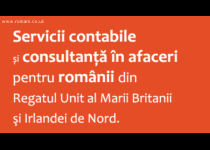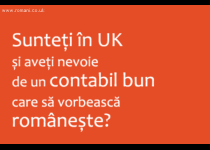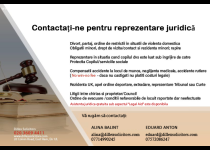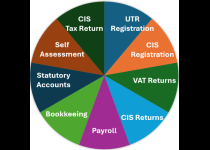Articolul demontează clişee eronate privind comunitatea românească din UK, fiind şi o reacţie la declaraţii recente ale liderului UKIP, Nigel Farage, care incriminează cetăţenii români, acuzându-i de creşterea ratei criminalităţii în UK.
În aceeaşi ediţie, este publicat şi un articol semnat de jurnalista Jessica Elgot, cu titlul Romanian Lives Being Ruined By 'Scaremongering', Ambassador Ion Jinga Says, care subliniază argumentele în favoarea unei interpretări corecte şi nepărtinitoare a datelor statistice privind comunitatea românească din UK.
CItiți mai jos cele două articole:
Romania in the UK and the Culture of Blame
by dr. Ion Jinga
We all know that today East Europeans do not get a very good press in Britain. Economic difficulties, austerity measures, the rising of anti-EU rhetoric, the electoral context and misleading forecasts in 2004 have combined to create a culture of blame whose victims are now Romanians and Bulgarians. Since the beginning of the year the British public opinion is regularly served with scaremongering about "waves of immigration" and "waves of crime" coming from Eastern Europe and therefore it is not surprising that hostility to immigration has grown.
Part of the media disproportionately associates migrants with theft, pick pocketing and begging but these are phenomena affecting all major cities since the ancient times. It has neither emerged in the recent years in Europe, nor is related to Eastern European communities that have settled into Western countries. Therefore, any attempt to link criminality with a particular nationality or to present it as the result of the EU enlargement is not only untrue, but could fuel racially motivated incidents, as we have witnessed occasionally.
According to research conducted by LSE and quoted by The Observer, in Britain crimes in neighbourhoods that have experienced mass immigration from Eastern Europe has fallen significantly. The report also found that the relationship between the arrival of thousands of foreigners and levels of violence was "close to zero and insignificant".
In their great majority, Romanians living in the UK are very well integrated into the local communities and their presence here is mainly the result of the British market demand. They have the highest employment rate in this country, 85%, with almost 40% having a university degree. They work hard, pay taxes and are valued by their employers. They put into the British public purse more than they take out. Unfortunately, distorted and biased information about a "crime wave" after 1 January 2014 is damaging their lives and reputation.
An illustrative example is the allegation made by politicians whose assumed aim is to "cause an earthquake" in Britain by leaving the EU and sending foreigners back to their home countries: "27,000 Romanians were arrested for the last five years". First, "arrested" is very much different from "charged" or "convicted". A simple ID check in traffic becomes an "arrest" in statistics if you are asked to go to the police station for ID verification, even though you are released immediately after. Second, it doesn't mean that 27,000 Romanians were "arrested", because in many cases the same person was arrested several times. Third, this figure is for a five years period. To compare, only in 2012 more than 5.6million crimes were committed in the UK. If multiplied by five years, one could reach the conclusion that 28million Britons have committed crimes. It is, of course, a non-sense, as it is a non-sense to say that one third of Romanians living in the UK have been arrested!
Yes, crime is an issue but just look to a larger perspective: there is no country without crime and it is a proven fact that the crime rate in Romania is one of the lowest in the whole of Europe. Crimes perpetrated by Romanians in the UK are of a low risk, the so called "petty crime" and statistics show that the number of Romanian citizens convicted in the first half of 2013 has fallen by 20% compared with the same period of 2012.
As I have previously said, the Romanian authorities in Bucharest and our Embassy in London have a zero tolerance policy on any type of crime committed by Romanians and we have developed an excellent cooperation with the British law enforcement. A recent example is a joint project about understanding the communities' needs and working in partnership with the view to preventing and addressing criminality. In a multicultural society as London, there is a need to share best practices, skills and expertise between law enforcement. The Metropolitan Police has invited several EU countries to take part in a joint bid to the European Commission to create here one of the first multinational teams of police officers - the Operation Nexus.
Romania was the very first country to answer positively to this invitation and a few days ago eight Romanian police officers came to London to work in secondment with their British colleagues.
As Romania has to protect more than 1,000km of the EU external border, our officers have the opportunity to gain first-hand experience in how one of the best police forces in the world operates and deal with a multicultural environment.
As citizens of the EU, Romanians are able to go where they like within the European Union - just like Britons. No one could say how many of them might come to the UK next year, but any rational analyses using the available statistics leads to the conclusion that the UK is not a preferred destination for most Romanians seeking a job. Of those who wanted to emigrate, many have already done so in the past seven years. Migration from Romania may have seemed a solution during a time of economic crisis, but now our economy is growing and we need our people to come back home and use their skills there.
What is for sure - and was recently confirmed by the Europol Director - is that the lifting of restrictions for Romanians and Bulgarians next January will not bring an increase in the crime rate in Britain.
Fairness has always been part of the British heritage. Romanians share the same core values that make the United Kingdom a modern and model society. They have a strong feeling of respect for Britons. I believe my compatriots living in the UK deserve to be treated with the same respect.
Romanian Lives Being Ruined By 'Scaremongering', Ambassador Ion Jinga Says
The Huffington Post UK | By Jessica Elgot
Hardworking Romanians in Britain are having their lives and reputations ruined by misleading statistics and "scaremongering" rhetoric from the media and politicians, the Romanian ambassador has claimed.
Writing for The Huffington Post UK, Dr Ion Jinga says there is no evidence to suggest any increase in crime since Romanians began settling in Britain, and said statistics are wilfully manipulated to portray his countrymen in a bad light.
"Part of the media disproportionately associates migrants with theft, pick pocketing and begging but these are phenomena affecting all major cities since the ancient times. It has neither emerged in the recent years in Europe, nor is related to Eastern European communities that have settled into Western countries."
"Unfortunately, distorted and biased information about a 'crime wave' after 1 January 2014 is damaging their lives and reputation.
"An illustrative example is the allegation made by politicians whose assumed aim is to “cause an earthquake” in Britain by leaving the EU and sending foreigners back to their home countries: '27,000 Romanians were arrested for the last five years'.
First, “arrested” is very much different from 'charged' or 'convicted'.
"A simple ID check in traffic becomes an 'arrest' in statistics if you are asked to go to the police station for ID verification, even though you are released immediately after.
Second, it doesn’t mean that 27,000 Romanians were “arrested”, because in many cases the same person was arrested several times.
"Third, this figure is Romanian citizens convicted in the first half of 2013 has fallen by 20% compared with the same period of 2012."
His blog comes as several newspapers reported today that many Romanians in France are considering moving to Britain to "get benefits here". But Dr Jinga said Romanians have the "highest employment rate in this country – 85%, with almost 40% having a university degree.
"They work hard, pay taxes and are valued by their employers. They put into the British public purse more than they take out."
Dr Jinga said all research suggested that Romanians did not name the UK as their preferred destination, when the rules change to allow EU migration from Romania in 2014.
"Of those who wanted to emigrate, many have already done so in the past seven years," he said.
"Migration from Romania may have seemed a solution during a time of economic crisis, but now our economy is growing and we need our people to come back home and use their skills there.
"What is for sure – and was recently confirmed by the Europol Director – is that the lifting of restrictions for Romanians and Bulgarians next January will not bring an increase in the crime rate in Britain."
Sursa: Press Office
Embassy of Romania in London


 În contextul multiplicării articolelor de presă şi a declaraţiilor xenofobe ale unor politicieni britanici privind valul de români şi valul de criminalitate ce vor invada UK după 1 ianuarie 2014, ambasadorul României la Londra, dr. Ion Jinga, a publicat în ediţia online a ziarului Huffington Post UK din 7 octombrie 2013 un articol de opinie cu titlul Romania in the UK and the Culture of Blame.
În contextul multiplicării articolelor de presă şi a declaraţiilor xenofobe ale unor politicieni britanici privind valul de români şi valul de criminalitate ce vor invada UK după 1 ianuarie 2014, ambasadorul României la Londra, dr. Ion Jinga, a publicat în ediţia online a ziarului Huffington Post UK din 7 octombrie 2013 un articol de opinie cu titlul Romania in the UK and the Culture of Blame.  Va reamintim ca vineri, 11 octombrie 2013, va avea loc primul show in UK a FLOU REGE/ CHIMIE/ DJ ALBU. Au mai ramas doar cateva ore pentru a participa la concursul prin care aveti sansa de a castiga o invitatie pentru doua persoane la concert!
Va reamintim ca vineri, 11 octombrie 2013, va avea loc primul show in UK a FLOU REGE/ CHIMIE/ DJ ALBU. Au mai ramas doar cateva ore pentru a participa la concursul prin care aveti sansa de a castiga o invitatie pentru doua persoane la concert! Piesa de Mimi Brănescu, cu Vlad Zamfirescu şi Mirela Oprişor, în regia lui Claudiu Goga s-a jucat in doua reprezentatii cu casa inchisa ieri, la The Cockpit, Londra.
Piesa de Mimi Brănescu, cu Vlad Zamfirescu şi Mirela Oprişor, în regia lui Claudiu Goga s-a jucat in doua reprezentatii cu casa inchisa ieri, la The Cockpit, Londra.























